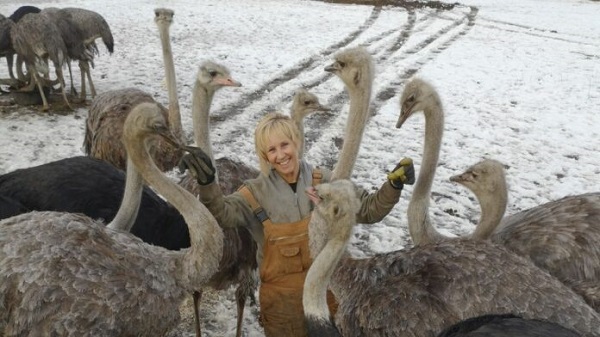Agriculture
Farmers’ protests reach the heart of the EU as chaos unfolds outside European Parliament

European farmers in Brussels
From LifeSiteNews
Protesting farmers blocked many roads with tractors, started bonfires, set off fireworks, and toppled a statue in front of the European Parliament.
Protestors have now blocked streets in Brussels with tractors and started bonfires in front of the European Parliament.
On February 1, the Europe-wide farmers’ protest against policies threatening their existence reached Brussels, where protestors blocked many roads with tractors, started bonfires, set off fireworks, and toppled a statue in front of the European Parliament.
🚨🇧🇪BREAKING: FARMERS TARGET EUROPEAN PARLIAMENT IN BRUSSELS
As anger sweeps through farming communities in Europe, protesters in Belgium have begun to build barricades and start fires outside the EU parliament.
They’re protesting new environmental regulations they call… https://t.co/nqmrV9k5OS pic.twitter.com/vWSgWVJyBr
— Mario Nawfal (@MarioNawfal) February 1, 2024
“We want to stop these crazy laws that come every single day from the European Commission,” a Spanish farmer representing his country’s farmer’s union told Reuters.
According to Reuters, the police used tear gas and water cannons against some protestors who tried to tear down barriers that were erected to protect the parliament.
The protest in Brussels happened in the context of a continent-wide uprising, including in France, where 10,000 farmers erected more than 100 blockades on important roads across the country. Farmer protests also took place in Spain, Portugal, Italy, Greece, Germany, Scotland and Ireland.
READ: How Dutch protests ignited a global backlash to the ‘green’ war on farmers
🚨 Belgian farmers have joined the protests across Europepic.twitter.com/SWrrFMCfhY
— Mario Nawfal (@MarioNawfal) January 31, 2024
A German comedian and member of the European Parliament, Martin Sonneborn, wrote on X, formerly Twitter, “thousands of farmers with agricultural delegations from France, Belgium, Spain, Italy and Portugal camped outside my workplace in Brussels. The city is at a standstill, already 230 kilometers of traffic jams at 8 o’clock in the morning.”
“As far as the EU is concerned, the outside world and the inside world are clearly no longer in any meaningful relationship with each other: while more than 1,300 tractors are blocking the European Parliament and its burning forecourt outside, the 27 heads of state inside have not even put the farmers’ anger on their agenda,” he wrote.
“The so-called common people, the farmers & workers, have often been the main driving force in European history. While those in office are, well, rather described as somewhat ‘retarding’.”
“Vive la farmers’ revolution!” Sonneborn concluded.
In der Nacht vor dem heutigen EU-Sondergipfel haben Tausende Bauern mit Landwirtschaftsdelegationen aus Frankreich, Belgien, Spanien, Italien und Portugal vor meinem Arbeitsplatz in Brüssel kampiert. Die Stadt steht still, schon 230 Kilometer Stau um 8 Uhr morgens. Gut, dass ich… pic.twitter.com/4nKXIKWLfF
— Martin Sonneborn (@MartinSonneborn) February 1, 2024
Archbishop Carlo Maria Viganò, the former papal nuncio to the U.S., expressed his support for the farmer’s protests in a recent post on X.
The globalist criminal plan wants to destroy traditional agriculture, animal husbandry, and fishing in order to force people to eat artificial food produced by multinational corporations. And it is the big investment funds and the Word Economic Forum that are lobbying parliaments… pic.twitter.com/YCcqBWSstW
— Arcivescovo Carlo Maria Viganò (@CarloMVigano) January 31, 2024
“The globalist criminal plan wants to destroy traditional agriculture, animal husbandry, and fishing in order to force people to eat artificial food produced by multinational corporations,” he wrote. “And it is the big investment funds and the Word Economic Forum that are lobbying parliaments to impose a devastating and inhuman ‘transition’.”
“I express my complete solidarity with and encouragement to the farmers, ranchers, fishermen, truck drivers, and all those who support them.”
“Let us accompany with prayer those who are fighting against the New World Order. May the Rosary be the spiritual chain that unites us. May the Lord accompany, protect, and bless those who are waking up before it is too late,” Viganò concluded.
Foreign imports and ‘climate change’ policies threaten existence of farmers
At the time of the protests, an extraordinary summit of the heads of state of the EU members took place in Brussels. During the meeting, the politicians approved a 50 billion euro aid package for Ukraine.
One of the farmers’ concerns is the flooding of the European market with cheap Ukrainian imports that are meant to help the country with its war efforts. Since Ukraine and other non-EU countries do not have to adhere to the high environmental standards of the EU, the farmers view it as unfair competition that threatens their existence.
For the same reason, the farmers also oppose a planned trade deal between the EU and the Mercosur bloc, a federation of countries in South America.
One of the major issues for farmers is the so-called “green” measures imposed by EU bureaucrats that include higher taxes or cuts to tax subsidies as well as bans on necessary tools such as nitrogen fertilizer.
The farmers have also been blamed for their greenhouse emissions and their alleged contribution to “climate change”. They are heavily affected by the EU’s plan to achieve “net-zero” emissions and make the bloc “climate-neutral” by 2050.
The plan includes cutting fertilizer use by 20%, limiting the amount of land dedicated to agricultural use, halving pesticides by 2030, and doubling organic food production.
While some of these measures may have a positive impact on food quality, they put immense pressure on farmers, especially smaller farms, whose numbers have been on the decline for decades. The EU’s plan to combat so-called “climate change” could lead to the majority of farmland being controlled by a relatively small elite.
READ: No farmers, no freedom: Why globalists want to control the world’s food supply
Part of the problem for smaller farms is the EU’s common agricultural policy (CAP), a € 55 billion per year subsidy system that has been in place for over 60 years. The system “has historically been based on economy of scale: bigger farms, bigger holdings, common standards,” Jon Henley from The Guardian writes.
This policy has led to a continuous decrease in small farms in Europe as they have become increasingly uncompetitive.
Agriculture
Unstung Heroes: Canada’s Honey Bees are not Disappearing – They’re Thriving

Canada’s Bee Apocalypse began in 2008. That was the year the Canadian Association of Professional Apiculturists (CAPA) first reported unusually high rates of winter bee colony losses. At 35 percent, the winter die-off that year was more than twice the normal 15 percent rate of attrition.
“Successive annual losses at [these] levels … are unsustainable by Canadian beekeepers,” the CAPA warned. This set off an avalanche of dire media reports that now appear on a regular basis. Among the many examples over the years: Huge Honey Bee Losses Across Canada” and “Canada’s bee colonies see worst loss in 20 years”. As each of these stories reminds readers, the disappearance of honey bees will doom our food supply, given their crucial role in pollinating crops including canola, soyabeans, apples, tomatoes and berries.
This year the black-and-yellow striped Cassandras are back at work, with headlines shouting “Scientists warn of severe honeybee losses in 2025” and “The Bees are Disappearing Again”. If it’s spring, the bees must be disappearing. Again.
It is, however, mathematically impossible for any species to be in an allegedly continuous and calamitous state of decline over nearly two decades and never actually reduce in number. For despite the steady supply of grave warnings regarding their imminent collapse, Canada’s bees are actually buzzing with life.
In 2007, according to Statistics Canada, there were 589,000 honey bee colonies in Canada,; in 2024, they reached 829,000, just shy of 2021’s all-time high of 834,000. Figuring a conservative summertime average of 50,000 bees per colony, that means there are approximately 12 billion more honey bees in Canada today than when the Bee Apocalypse first hit.
As for beekeepers, their numbers have also been growing steadily, and now stand at 15,430 – the most recorded since 1988. As CAPA’s report acknowledges, “the Canadian beekeeping industry has been resilient and able to grow, as proven by the overall increase in the number of bee colonies since 2007 despite the difficulties faced every winter.”
How is this possible? As is usually the case where there’s a need to be filled, the market holds the answer.
It is true that Canadian honey bees face a long list of threats and challenges ranging from mites and viruses to Canada’s harsh winters. It is also true that they perform a crucial service in pollinating crops, the value of which is estimated at $7 billion annually. However, this underscores the fact that bees are a livestock bred for a particular agricultural purpose, no different from cattle, chickens or pen-raised salmon. They are a business.
And in spite of its alleged status as an environmental totem, the honey bee isn’t even native to North America. It was first imported by European settlers for its honey-making abilities in the 1600s. Since then, it has been cultivated with deliberate commercial intent – allowing it to outcompete native pollinators such as bumble bees and butterflies even though it is poorly suited to the local winter. (This highlights the irony of all those native-plant pollinator gardens virtuously installed in neighbourhoods across Canada that end up supporting an invasive honey bee population.)
The significance of the bee economy means that when a beehive collapses over the winter for whatever reason, beekeepers have plenty of motivation to regenerate that colony as swiftly as possible. While hives can create their own queens over time, this can be a slow process given the cold Canadian climate. The better option is to simply buy a new queen from a warmer country.
In 2024, Canada imported 300,000 queens worth $12 million, mostly from the U.S., Italy, Australia and Chile. That works out to $40 each. In a miracle of nature, each of these new queens can lay up to 2,500 eggs a day, and each egg takes just two to three weeks to reach full maturity as a worker or drone. It is also possible to import entire “bee packages” that include a queen and 8,000 to 10,000 bees.
As a result, even a devastating 50 percent winter loss rate, something that has occurred only rarely in Canada in individual provinces and never nationally, isn’t necessarily fatal to any beekeeping operation. The beekeeper can purchase imported queens in April, split their existing colonies and be back in business by May or June.
And regardless of the honey bee’s apparent difficulties with Canada’s unforgiving weather (efforts are ongoing to breed a hardier Canadian variant), there’s no shortage of bees worldwide. Earlier this year, the German statistical agency reported the global beehive count rose from 69 million in 1990 to 102 million in 2023. Another study looking back to 1961 by New Zealand researchers found the number of honey bee colonies has “nearly doubled” over this time, while honey production has “almost tripled.” As the New Zealand report observes, “Headlines of honey bee colony losses have given an
impression of large-scale global decline of the bee population that endangers beekeeping, and that the world is on the verge of mass starvation.” Such claims, the authors note, are “somewhat inaccurate.” In truth, things have never been better for bees around the world.
Here in Canada, the ability to import queens from other countries, together with their prodigious reproductive capabilities, backstops the amazing resiliency of the bee industry. Yes, bees die. Sometimes in large numbers. But – and this is the bit the headlines always ignore – they come back. Because the market needs them to come back.
If there is a real threat to Canada’s bee population, it’s not environmental. It’s the risk that unencumbered trade in bees might somehow be disrupted by tariffs or similar bone-headed human interventions. Left on their own, bees have no problem keeping busy.
The longer, original version of this story first appeared at C2CJournal.ca
Agriculture
Canada Greenlights Mass Culling of 400 Research Ostriches Despite Full Recovery from Bird Flu Months Ago

 Nicolas Hulscher, MPH
Nicolas Hulscher, MPH
Federal court upholds CFIA’s reckless cull order—setting a dangerous precedent for the unscientific mass depopulation of genetically important animals.
In March, I interviewed Katie Pasitney of Universal Ostrich and Connie Shields to discuss the alarming implications of the Canadian Food Inspection Agency (CFIA) order to cull 400 research ostriches at Universal Ostrich Farm in British Columbia over bird flu:
Canada Orders Mass Culling of 400 Research Ostriches Over Bird Flu, Refuses to Test Surviving Birds for Natural Immunity
·The Canadian Food Inspection Agency (CFIA) has ordered the culling of 400 ostriches at Universal Ostrich Farm in British Columbia, citing concerns over H5N1 bird flu. However, this decision is not based on sound science and could have serious consequences for both food security and medical research.
Universal Ostrich Farm is a research facility focused on studying the unique antibody-producing capabilities of ostriches. Their research has demonstrated potential in neutralizing viruses, bacteria, and even COVID-19, making it an important contribution to medical science.
In December 2024, the CFIA claimed that two deceased ostriches—which had been lying outside for over 16 hours—tested positive for H5N1 via PCR testing. Just 41 minutes after receiving these results, the CFIA signed an order to cull the entire flock.
The CFIA initially granted the farm an exemption, recognizing the birds as “genetically important.” Later, without clear justification, they reversed this decision, ordering their destruction.
Despite the importance of this research, the CFIA has refused to conduct further testing on the birds and has banned the farm from conducting its own tests, under threat of heavy fines and possible imprisonment. Why is the Canadian government refusing to study the potential antibodies ostriches have developed against H5N1 bird flu?
On January 31, 2025, a court granted a temporary stay of execution, halting the cull. However, the CFIA is appealing this decision, which means the culling could still proceed.
Today, we have received news that the reckless mass cull order will proceed despite their ostriches having already recovered months ago and developed natural immunity against H5N1:

Official Announcement: Federal Court Decision in Universal Ostrich Farms Inc. v. Canadian Food Inspection Agency
Dear friends and supporters,
We are absolutely devastated to share today’s Federal Court decision, issued on May 13, 2025. The court ruled in favour of the Canadian Food Inspection Agency (CFIA), upholding their order to destroy our beloved ostriches and rejecting our plea to save them.
The court’s decision accepted the CFIA’s justification under the Health of Animals Act and their use of the Stamping-Out Policy, which mandates the destruction of animals to control disease outbreaks, regardless of their health status. The court confirmed the CFIA’s approach, prioritizing trade obligations over the welfare of our animals.
In addition, we’ve been ordered to pay $15,000 in CFIA’s legal costs. You can read the full decision here: (2025 FC 878). https://saveourostriches.com/wp-content/uploads/2025/05/JR-T-294-25-and-T-432-25-Final.pdf
We are heartbroken by this outcome and uncertain about the future of our farm. As we navigate this incredibly difficult time, we ask for your patience and continued support. If you are able, please consider making a donation to help us manage the financial and emotional toll this has taken.
Thank you,
Universal Ostrich Farm
http://SaveOurOstriches.com
This deeply misguided decision sets a dangerous precedent for the Canadian government to recklessly depopulate animals at will.
By upholding the CFIA’s reckless cull order, despite the ostriches’ recovery and natural immunity, the court has prioritized trade protocols over scientific inquiry, animal welfare, and the advancement of life-saving medical research.
Epidemiologist and Foundation Administrator, McCullough Foundation
www.mcculloughfnd.org
Please consider following both the McCullough Foundation and my personal account on X (formerly Twitter) for further content.
-

 Alberta2 days ago
Alberta2 days agoAlberta judge sides with LGBT activists, allows ‘gender transitions’ for kids to continue
-

 Crime1 day ago
Crime1 day agoNational Health Care Fraud Takedown Results in 324 Defendants Charged in Connection with Over $14.6 Billion in Alleged Fraud
-

 Health1 day ago
Health1 day agoRFK Jr. Unloads Disturbing Vaccine Secrets on Tucker—And Surprises Everyone on Trump
-

 Business2 days ago
Business2 days agoMassive government child-care plan wreaking havoc across Ontario
-

 Business17 hours ago
Business17 hours agoElon Musk slams Trump’s ‘Big Beautiful Bill,’ calls for new political party
-

 Business2 days ago
Business2 days agoCanada Caves: Carney ditches digital services tax after criticism from Trump
-

 Crime2 days ago
Crime2 days agoSuspected ambush leaves two firefighters dead in Idaho
-

 Bruce Dowbiggin2 days ago
Bruce Dowbiggin2 days agoThe Game That Let Canadians Forgive The Liberals — Again








